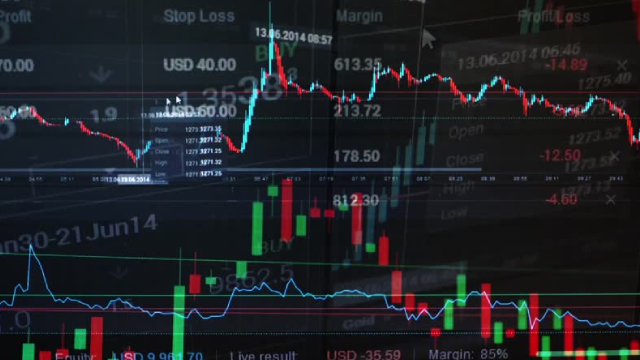
ProShares Bitcoin ETF (BITO)

BITO: The High Distribution Won't Save You From A Crypto Winter
ProShares Bitcoin ETF offers high distributions but mirrors bitcoin's downside risk during downturns, not protecting investors from losses. BITO's 62% distribution rate does not equate to an actual yield but represents a gains crystallization tool. BITO is most attractive post a downturn, helping investors crystalize gains and mitigate psychological challenges of market timing.

ProShares' ETF Suite Rises Past $100 Billion AUM Threshold
The ETF industry has proliferated in recent years. Each year brings more and more launches and AUM to issuers and asset managers offering a growing set of products.

BITO: Good Alternative To Play Bitcoin Bullish Trend
I rate BITO a BUY as the expected Fed rate-cut cycle and rising institutional adoption create a bullish outlook for Bitcoin. BITO with Bitcoin Futures offers an attractive income-focused alternative to spot Bitcoin ETFs, with ultra-high yield (e.g., 52%) and monthly distributions. BITO features a relatively lower volatility and active options for risk management, such as PUT protection and income enhancement.

BITO: There Are Better Ways To Play Bitcoin (Technical Analysis)
BITO's technicals show balanced support/resistance, but a double top and weak momentum signal a potential bearish reversal. Bullish momentum is fading, with MACD, RSI, and stochastics all confirming weakening bulls and rising downside risk. BITO's structure offers high yield but comes with higher risk and expenses compared to ARKB and IBIT peers.

BITO As A Complement To Bitcoin Holdings
BITO offers indirect Bitcoin exposure via futures contracts, providing monthly income, unlike spot Bitcoin ETFs or direct ownership. BITO's futures-based structure reduces risks like theft and adds yield, making it a strong complement to existing Bitcoin holdings. Performance may lag spot Bitcoin during rangebound periods or due to contango.

BITO: On The Verge Of A Break To New Highs
BITO provides convenient Bitcoin exposure via futures, offering strong correlation and significant income distributions, though not a perfect 1:1 price tracker. Distributions are highly volatile but meaningful, totaling nearly half the share price over the past year, making total return analysis essential. While direct Bitcoin ownership outperformed BITO on total return, BITO's accessibility and income potential make it an attractive alternative for many investors.

BITO: Buy For Upside And Income With Risks
BITO offers indirect bitcoin exposure with substantial recent payouts, but its dividend policy lacks clarity and reliability for income-focused investors. BITO outperforms option-based income ETFs in total returns, especially during bitcoin bull runs, while preserving more NAV than aggressive yield products like YBIT. Despite futures-based inefficiencies and tracking error, BITO is attractive for investors seeking bitcoin exposure with potential income, especially in brokerage or IRA accounts.

BITO: Potential Interesting Way To Gain Bitcoin Exposure
Year-to-date, spot ETFs have attracted over $36 billion in inflows, with ProShares Bitcoin Strategy ETF (BITO) benefiting indirectly from Bitcoin's rapid ascent. Registered Investment Advisors (RIAs) are increasingly recommending crypto, with 40% already doing so and 56% planning to, driving spot ETF inflows. Bitcoin's current phase is high profit/low volatility, potentially leading to an acceleration phase with price appreciation and increased volatility.

BITO: Bitcoin Is Failing As A Long-Term Investment
Despite the hype, Bitcoin's returns over the past 4 years are nearly identical to a 5% flat return, making it a second-tier trading destination for me. BITO was useful before better options like IBIT emerged, but its high costs and mediocre performance lead me to a sell rating. Bitcoin trading has taught me to ride the waves with modest capital, using tools like BITI for short positions without direct shorting risks.

BITO: The Wrong Fund At The Wrong Time
The ProShares Bitcoin ETF underperforms due to high costs and complexity, making it a poor investment compared to newer, lower-cost ETFs. BITO's high expense ratio of 0.95% and reliance on futures and swaps hinder its ability to meet its investment objectives. The fund's attractive trailing 12-month yield is misleading as it shrinks with the falling share price.

BITO: High Expenses And High Risk Causing Underperformance
BITO has underperformed Bitcoin significantly due to structural issues like contango, high expense ratios, and tax burdens, leading to a "hold" rating. BITO tracks Bitcoin futures, not spot prices, causing inefficiencies and higher costs compared to spot ETFs like IBIT, which holds actual Bitcoin. Despite political and economic factors favoring Bitcoin, technical indicators suggest potential volatility, making it uncertain if BITO will hold above $17 or fall to $10.

The Reason Bitcoin Is A Terrible Investment
Bitcoin is not a productive asset and lacks intrinsic value, making its long-term buy-and-hold strategy via ETFs like BITO questionable. Bitcoin as a currency is impractical due to its deflationary nature, which could harm economic growth and increase lending risks. Even if Bitcoin reaches the market capitalization of gold, the return will be far too low for the risk taken.







